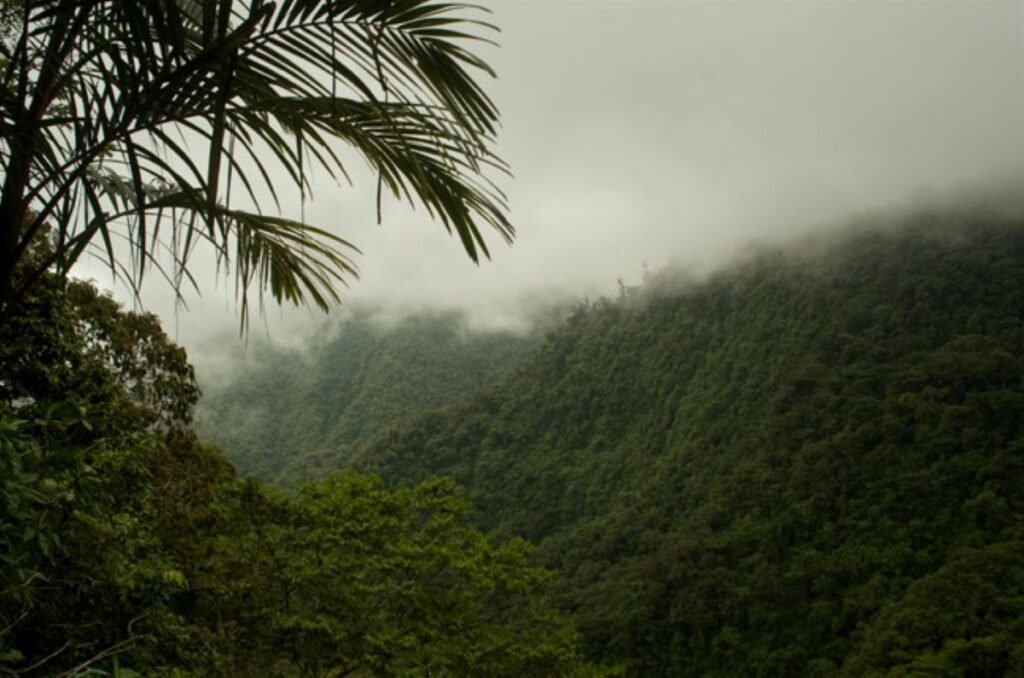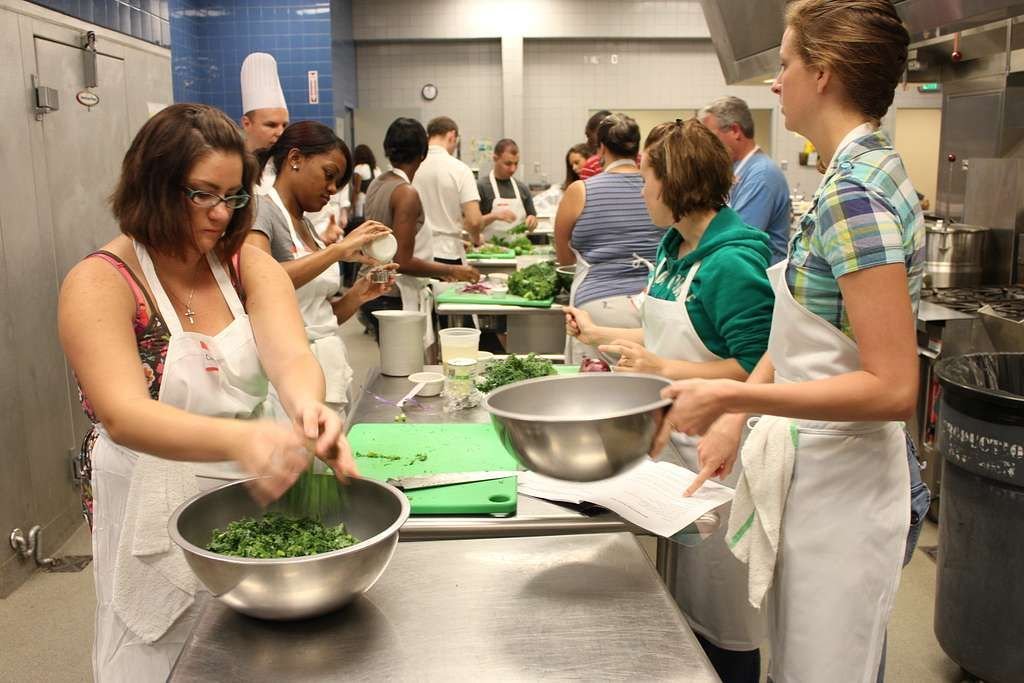Physical Address
304 North Cardinal St.
Dorchester Center, MA 02124


How to Travel Responsibly
Learn how to reduce your carbon footprint while exploring the world’s most breathtaking destinations with these practical tips and eco-friendly strategies. Find out how you can support local communities through ethical travel.
Imagine standing on a pristine beach in Thailand as the sun rises and paints the sky with brilliant shades of orange and pink. The warm sand feels soft beneath your feet and the gentle sound of the waves creates a perfect natural symphony. However, as you walk along the shoreline, you notice plastic bottles scattered across what should be paradise. This moment perfectly encapsulates why sustainable travel has become a necessity, not just a trend.
Sustainable travel is about visiting a destination in a way that has a positive impact on the environment, society and the local economy. It’s about experiencing the world’s wonders while ensuring they are preserved for future generations to enjoy.
During my recent trip to Costa Rica’s cloud forests, I saw for myself how responsible tourism can transform communities. Local guides told me how eco-lodges had created stable job opportunities, enabling families to remain in their villages rather than migrating to cities. The forest, which was once under threat from logging, is now thriving as a protected ecosystem that supports both wildlife and human livelihoods.
Ethical travel advice encompasses more than just environmental concerns. It also covers cultural sensitivity, economic fairness and social responsibility. By travelling sustainably, we can become ambassadors of positive change and leave destinations better than we found them.

Costa Rica’s Cloud Forests: How Responsible Tourism Can Transform Communities
The journey to becoming a responsible traveller begins long before you board your flight. It involves shifting your mindset from that of a consumer of destinations to that of a conscious participant in local cultures and ecosystems.
Responsible travel is founded on research. Before visiting any destination, I spend hours learning about the local customs, environmental challenges and community needs. This level of preparation can transform an ordinary trip into a meaningful exchange.
When planning your next adventure, consider these essential questions:
The choice of accommodation you make can have a significant impact on the sustainability of your travels. Eco-friendly hotels and guesthouses often implement water conservation systems, use renewable energy and source food locally. During my stay at a solar-powered lodge in the Atlas Mountains in Morocco, I discovered that sustainable hospitality can enhance, rather than compromise, comfort.
When booking accommodation, look for certifications such as Green Key, LEED or local sustainability standards. Many budget-friendly options, such as hostels and local guesthouses, tend to be more sustainable than large resort chains.

Choosing Sustainable Accommodations
The beauty of sustainable tourism is that it is accessible to all , you don’t need unlimited resources to travel responsibly. It is the accumulation of small, conscious choices that creates a significant collective impact.
Transportation usually accounts for the largest part of your travel’s carbon footprint. However, making smart choices can dramatically reduce your environmental impact without compromising on the quality of your adventure.
Overland Adventures: Whenever possible, opt for trains, buses or shared transport instead of flying. My most memorable journey was a three-week train adventure across Europe which produced a fraction of the emissions of a flight, while offering incredible cultural immersion opportunities.
Flight optimisation: When flying is unavoidable, book direct flights, choose economy class and consider carbon offset programmes. Many airlines now offer legitimate offset options that fund renewable energy projects or reforestation initiatives.
Local transport: When you arrive, consider using public transport, cycling or walking. These options not only reduce emissions, but also provide an authentic local experience. In Amsterdam, for example, cycling through narrow streets revealed hidden cafés and local markets that would have been invisible from a tour bus.
Smart packing is both an environmentally friendly choice and a practical travel strategy. Pack light to reduce fuel consumption for transportation, and bring reusable items to minimise waste generation.
Essential sustainable travel items include:

Sustainable Packing Strategies
Adopting green travel practices doesn’t have to be expensive. Some of the most sustainable travel experiences involve embracing local lifestyles and choosing authentic, rather than commercialised, options.
Street food markets offer sustainable dining experiences and support local vendors. At Vietnam’s floating markets, for example, I found that locally sourced meals were cheaper than those in international chain restaurants, and much more flavourful and culturally authentic.
Affordable Accommodation: Homestays, locally owned guesthouses and eco-hostels tend to be cheaper than international hotel chains, and offer a more authentic experience and greater benefits to the local community.
Free Sustainable Activities:
Moderate budgets open up a wide range of sustainable travel options. Eco-lodges, responsible tour operators and sustainable dining experiences become more accessible, all while retaining an authentic local character.
Consider investing in experiences that directly benefit local communities, such as cooking classes with local families, guided walks with indigenous groups, and workshops with traditional craftspeople. These activities promote a deeper understanding of the local culture while ensuring that tourism revenue reaches the local people.

workshops with traditional craftspeople
True sustainable travel prioritises the benefits to local communities. Rather than exploiting destinations, tourism should empower them by creating opportunities for local people to share their culture while maintaining their traditions.
Every purchase decision has an impact on local communities. Supporting local restaurants instead of international chains, local guides instead of foreign tour companies and locally made souvenirs instead of imported goods will increase your positive impact.
During my exploration of Peru’s Sacred Valley, staying with local families allowed me to experience the rhythms of daily life that remain invisible to hotel guests. Morning potato harvesting, traditional weaving demonstrations and shared meals forged connections that went beyond the typical tourist experience.

Sacred Valley of Peru, morning potato harvest
To engage in meaningful cultural exchange, it is important to be humble, curious, and respectful. Learn some basic phrases in the local languages, observe the local customs and approach any differences with a genuine interest rather than passing judgement.
Respectful photography: Always ask for permission before taking photographs of people, especially in indigenous communities. Many cultures have specific beliefs about photography, which visitors should respect.
Religious and sacred sites: Research the appropriate behaviour, dress codes and restrictions before visiting religious sites. Respect local customs, even if they conflict with your personal beliefs.
Wildlife tourism raises complex ethical issues. While some activities genuinely support conservation efforts, others exploit animals for tourist entertainment while falsely claiming to be sustainable.
Authentic wildlife experiences prioritise animal welfare and conservation over tourist convenience. Legitimate sanctuaries focus on rehabilitation and release rather than entertainment and maintain minimal human–animal interaction.
Red Flags to Avoid:
Ethical Alternatives:
Given the fragility of marine ecosystems, ocean tourism requires particular sensitivity. Coral reefs, marine life and coastal environments are under unprecedented pressure due to climate change and human activities.
When snorkeling or diving, use reef-safe sunscreen, maintain appropriate distances from marine life, and never touch or remove coral. Many destinations now offer educational programs combining marine adventure with conservation awareness.
Reducing waste while travelling requires careful planning and making conscious choices. Every item you bring with you and every purchase you make has an environmental impact that extends beyond your journey.
Although achieving truly zero-waste travel remains challenging, significant waste reduction is absolutely achievable through smart preparation and conscious choices.
Meal planning: Bring reusable containers for takeaway food, refuse single-use plastic cutlery and choose restaurants that minimise packaging waste. Local markets often offer fresh food with minimal packaging, and support local farmers.s.
Water Solutions: Invest in a high-quality water filtration system to eliminate the need for bottled water. Many destinations now have water refill stations, and apps like Refill can help you to locate free water sources worldwide.
Accommodation practices: Reuse towels and bed linen, conserve water and electricity, and dispose of waste properly according to local recycling systems. Many eco-friendly accommodation providers offer guidelines on how to minimise environmental impact.
Reducing digital consumption while travelling improves experiences and minimises environmental impact. Being constantly connected can prevent you from having authentic travel experiences and consumes significant energy resources.
Consider designating phone-free periods, using offline maps and guides, and prioritising in-person interactions over updating social media. These practices will deepen your travel experience while reducing your energy consumption..
Local environmental conditions, cultural norms and economic situations must be taken into account when developing sustainable approaches for different destinations.
Severe water scarcity in desert regions makes conservation practices essential for responsible visitors. In Jordan’s Wadi Rum, I learnt how the Bedouin community has managed its limited water resources for generations — a practice that can be directly applied to sustainable travel.
Water Conservation Strategies:
Coastal destinations require particular attention in terms of protecting the marine ecosystem. Many coastal communities worldwide are under threat from rising sea levels, coral bleaching and plastic pollution.

Marine Conservation Considerations
Ocean-Friendly Practices:
Mountain environments require strict adherence to the principles of Leave No Trace. High-altitude ecosystems take a long time to recover from damage, so it is crucial to prevent any damage in the first place if we want these ecosystems to be sustainable in the long term.
Mountain Travel Ethics:
Cultural sensitivity is the cornerstone of sustainable travel. Respecting and understanding local customs fosters positive interactions and prevents unintentional offence or exploitation.
Invest time in learning the basic cultural norms before you arrive. Simple gestures such as knowing the appropriate greetings, dress codes and dining etiquette will demonstrate respect and enrich your travel experience.
In Thailand, I discovered that removing my shoes before entering homes and temples, learning the traditional ‘wai’ greeting and familiarising myself with Buddhist customs transformed my interactions with the local people. These small efforts opened doors to experiences that were unavailable to visitors who were not familiar with the culture.
Learning basic phrases in the local language shows respect and helps you to form deeper connections. Even simple words such as ‘hello’, ‘thank you’ and ‘please’ can dramatically improve interactions with local people.
Language-learning apps, phrasebooks and online resources make it easy to acquire a basic knowledge of a language, regardless of your linguistic background. Local people appreciate the effort to communicate in their language and often respond with extra patience and kindness..
Religious sites require particular cultural sensitivity. Before visiting temples, churches, mosques or other sacred locations, research dress codes, behaviour expectations and photography restrictions.
Universal Guidelines:
To plan sustainable travel, you need to understand visa requirements, the best time to travel, and how seasonal factors can affect both your experience and your environmental impact.
Research visa requirements early on in the planning process. Some countries offer e-visas or visas on arrival, which reduce paperwork and processing time. Make sure you have offline access to digital copies of important documents.
Many destinations now implement tourist taxes or environmental fees to support conservation efforts and infrastructure maintenance. Budget for these additional costs, bearing in mind the positive environmental impact they have.
Optimising your travel timing can reduce your environmental impact while enhancing your experience. Shoulder seasons often offer better weather, smaller crowds and lower prices, as well as alleviating the pressure of overtourism on popular destinations..
Seasonal Considerations:
Being aware of the climate helps you to minimise your environmental impact while ensuring a comfortable travel experience. Understanding seasonal weather patterns enables you to make better packing choices and plan activities more effectively.
Research the local climate, including seasonal rainfall, temperature ranges and the possibility of extreme weather. This will help you to avoid overpacking while ensuring that you are appropriately prepared for the local conditions.
You can save money on sustainable travel by embracing local lifestyles and choosing authentic experiences over commercialised ones.
Hostels and guesthouses: Many hostels now prioritise sustainability by implementing recycling programmes, conserving energy, and sourcing food locally. These types of accommodation naturally encourage social interaction and cultural exchange, all while offering budget-friendly prices.
Homestays and local lodging: Staying with local families offers an authentic cultural experience and directly benefits the host community. Many homestay networks now prioritise sustainable tourism practices.
House sitting and home exchanges: These options eliminate accommodation costs and reduce pressure on tourism infrastructure. Look after local homes and pets while experiencing destinations as a local rather than a tourist.
Local food markets offer sustainable dining options at affordable prices. Street food vendors often use locally sourced ingredients to provide an authentic culinary experience that is unavailable in restaurants.
Sustainable Dining Tips:
Public transport offers sustainable and economical travel options while providing an authentic local experience. Many cities now offer tourist transit passes that include public transport, bike-sharing and museum admissions.
Budget Transportation Options:
Those who have travelled a lot can use this knowledge to make sure that their trips have a positive effect on the environment while also making the most of their experiences.
Legitimate carbon offset programmes fund renewable energy projects, reforestation initiatives and clean development projects in developing countries. Carefully research offset providers, choosing programmes with transparent reporting and verified impacts.
Use reliable calculators to calculate your travel’s carbon footprint, then purchase offsets from certified programmes. Some travellers choose to offset double their calculated emissions to account for measurement uncertainties.
Although volunteer tourism can provide a meaningful cultural exchange and support local communities, it requires careful selection to avoid exploitation or ineffective programmes.
Choosing Ethical Volunteer Programs:
Consider the long-term impact of your travels on destinations and communities. Regular visitors to specific areas can develop ongoing relationships with local people, supporting local businesses and projects over time.
Some travellers develop a particular affinity with certain destinations, returning regularly to support long-term conservation or community development projects. These relationships foster a deeper cultural understanding and maximise the positive impact of tourism.
Sustainable travel involves visiting destinations in a way that has a positive environmental, social and economic impact. This involves minimising your carbon footprint, supporting local communities, respecting cultures and ensuring that destinations remain healthy for future visitors.
Sustainable travel is often more budget-friendly than conventional tourism. Opt for local transport, stay in homestays or hostels, eat at local markets and prioritise free activities such as hiking or cultural events. You will usually find better prices by supporting local businesses than by using international chains.
When chosen carefully, quality carbon offset programmes can effectively reduce the climate impact of your travel. Look for programmes with third-party verification and transparent reporting, as well as projects that provide additional environmental or social benefits beyond carbon reduction.
Avoid activities that exploit animals for entertainment, popular destinations during peak season, single-use plastic items and businesses that do not benefit the local community. Avoid Instagram-famous locations that cannot handle visitor numbers sustainably.
Research the certification credentials of tour operators, read reviews from previous travellers, ask about their environmental and social policies, and verify whether local guides and communities receive fair compensation. Reputable operators openly share information about their sustainability practices.
Absolutely! When approached thoughtfully, sustainable travel can support conservation efforts, provide economic opportunities for local communities and promote cultural exchange. The collective impact of your choices, combined with those of other conscious travellers, is significant.
Are you ready to turn your next adventure into a force for positive change? Start planning your sustainable trip today by researching eco-friendly accommodation and local activities at your chosen destination. Share your sustainable travel experiences and inspire others to become responsible travellers.
Which sustainable travel practices have had the biggest impact on your travels? Share your experiences and advice in the comments below – you could inspire other travellers to make more environmentally friendly choices.
© 2025 TravelGoEasy.net – This article is the exclusive property of TravelGoEasy.net and is protected by copyright. Any unauthorised copying or reproduction is prohibited.
Start planning your sustainable trip today by researching eco-friendly accommodation and local activities at your chosen destination. Share your sustainable travel experiences and inspire others to become responsible travellers.




